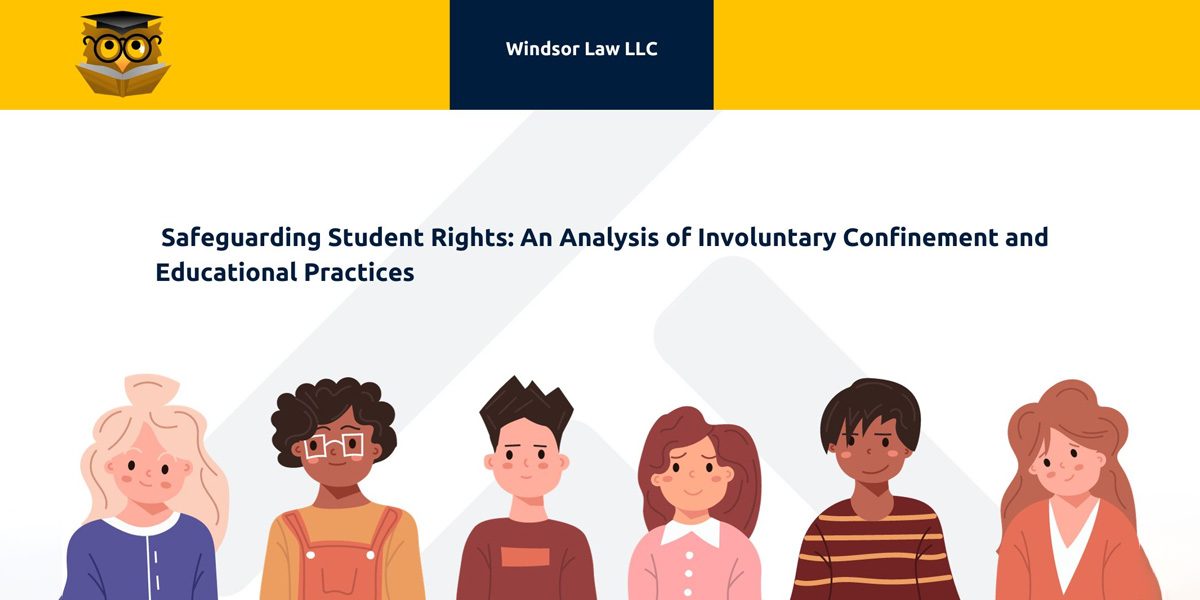
Windsor Education Law, led by Jane Windsor and Mitch Teitelbaum, brings nearly 50 years of legal expertise to focus exclusively on education law, advocating for students and families. The firm addresses student rights violations, improper involuntary confinement. Often championing equity through complaints with the Office for Civil Rights (OCR), and ethics complaints to the Florida Department of Education for educator misconduct.
Involuntary Confinement:
Despite the stated purpose of the Baker Act, its implementation often diverges from the intended scope. Florida Statute Section 394.463 outlines the criteria for involuntary examination, emphasizing the necessity for care and treatment when individuals are unable to assess their needs. Initiation methods include court orders, law enforcement intervention, or certificates from qualified professionals.
The Challenges in Implementation:
The law enforcement’s role in initiating examinations involves detailed procedures, including obtaining emergency contact information and, if necessary, seizing firearms. However, issues arise in the absence of less restrictive means, potentially leading to unnecessary or prolonged confinement.
The Crucial Role of Mental Health Professionals:
Physicians, psychologists, and mental health practitioners play a key role in initiating involuntary examinations through certificates, ensuring a comprehensive evaluation. Facilities must promptly submit documentation to the Department of Law Enforcement, maintaining transparency in the process.
Examination Period and Release:
The examination period is capped at 72 hours, with actions ranging from release to filing petitions for involuntary services. Minors require expedited examinations within 12 hours. The process must prioritize the least restrictive treatment, emphasizing the importance of timely decisions and communication with family members.
Notification and Data Analysis:
Schools, per Florida Statute 1002.20(3)(l), must promptly notify parents when a student undergoes involuntary examination. The Department analyzes data regularly, aiming to identify patterns and recommend alternatives to prevent inappropriate examinations, with reports submitted biennially.
Youth Suicide Awareness and Prevention:
Administrative Code Rule 6A-4.0010 mandates the use of approved suicide risk assessments, emphasizing uniformity among school districts and community-based mental health services providers. Trained personnel conduct assessments, and parents are notified promptly, aligning with the Parental Rights in Education law.
Parental Bill of Rights:
Florida’s Parental Bill of Rights underscores parents’ inalienable rights, including education decisions, moral training, and healthcare choices for their minor children. Prohibitions against unlawful conduct, parental waivers, and disciplinary actions for state employees attempting to hinder parental rights are highlighted.
Current Disturbing Trends:
Challenges persist in the implementation of the Baker Act, including its misuse for disciplinary purposes, overlooking IEP and 504 Plan protections, and inadequate communication with parents. Disturbing trends include the improper identification and confinement of emotionally fragile students and substandard mental health facilities.
Windsor Education Law’s investigations reveal certain school districts misusing the Baker Act laws and neglecting student rights. Often exposing vulnerabilities in mental health facilities in the process. Windsor law maintains a firm commitment and adherence to legal protocols that preserves student and parental rights in education.
